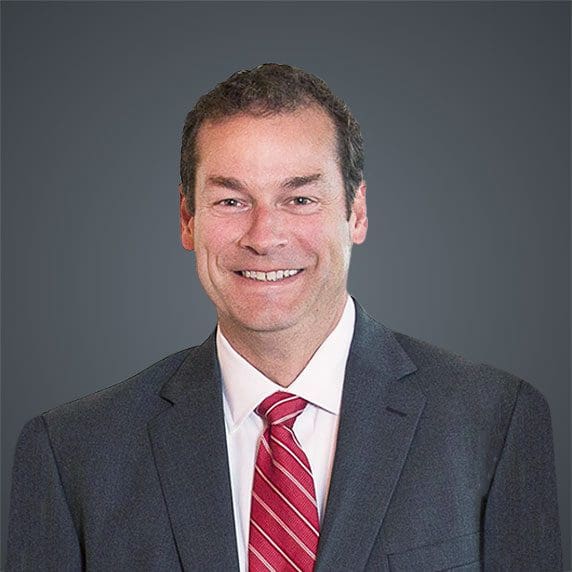Watch John Grady Share Legal Insights to NASDAQ Trade Talks
John Grady on Alternative Investments, Semi-transparent ETFs & ESG funds
Practus Partner, John Grady sits down with NASDAQ Trade Talks Global Markets Reporter, Jill Malandrino.
John discusses the latest developments impacting institutional and retail investors, including semi-transparent ETFs and ESG funds. His experience as a lawyer and as a business head with advisers, broker-dealers and commodity pools helps him provide valuable insight into the latest regulations and SEC proposals.
To learn more about John’s legal expertise and background, click here to view John Grady’s bio page.
NASDAQ Trade Talks Topics Covered with John Grady
- What retail investors are seeing and can expect in the summer and fall of 2020
- Semi-transparent ETFs
- Reforms in the Accredited Investor Standard
- SEC’s proxy voting reform
- The momentum of ESG funds
Full Video Transcription
#TradeTalks: The Latest Alternative Investments for Institutional & Retail Investors
Jill Malandrino: “Welcome to NASDAQ Trade Talks, I’m Jill Malandrino, Global Markets Reporter at NASDAQ. Joining me is John Grady, partner with the law firm Practus, to discuss the latest alternative investments for the institutional and retail investors, as well as an update in how regulators have dealt with COVID-19.”
John, it’s great to have you with us. Welcome back to Trade Talks.”
Practus, Partner John Grady: “Thank you very much.”
Jill Malandrino: “All right John, let’s learn more about your background. What viewpoints and experience do you bring to the discussion?”
John Grady: “I think it’s important to know that I come both as a lawyer and as a person who’s run many of the businesses that I now help advise. So that I don’t just see what something’s being proposed to do or something that might be an idea out there, but how it might impact the businesses that then have to cope with whatever has been proposed.”
Jill Malandrino: “Let’s spend some time on retail investors. What can they expect in the coming months from the industry? And the regulators? Will alternatives start to show up in retirement accounts?”
John Grady: “So, it’s interesting. I was going to talk about RegBI, which at this point, feels like ancient history. It came out on June 30th as an effective regulation which means you have to get more information from your broker dealer than ever before on what they do for you, how they charge you & what their conflicts might be. That’s going to result in new forms coming your way when you’re an investor.
The SEC just proposed new thoughts around an annual report on your mutual fund and many people own them through either directly (or through their retirement accounts) and they’re going to get an annual report that is more summary, more colorful, more interesting… maybe even more simplified and pushing some of the financial information into the background. Instead, focusing on comparative information, focusing on how the fund did against benchmarks to try to help an investor understand is my fund doing well is my fund doing poorly, both absolutely and in relative terms.
That just was announced on Wednesday, it’s going to be put out as a proposed rule starting today. You’ll get comment and there’ll be a chance to think about either changes or additions. But the fact is folks at the SEC are hard at work notwithstanding the pandemic, trying to think of ways to make the slew of paper that everybody gets in their mailbox (and wishes they had less of), how to make the paper they do get more useful & more relevant.”
Jill Malandrino: “Let’s talk about semi-transparent ETFs. It seems a bit counter-intuitive because the financial industry is always looking at ways to become more transparent.”
John Grady: “Right. This is the case where there are strategies that managers know and have run in mutual funds and separate accounts, that if you told the street what you were going to do ahead of time or in real time, folks would basically follow you & pick you off the way that people will try to follow a Berkshire Hathaway for example.
They could basically follow the footsteps of the manager and in doing so, either interfere with the manager’s ability to execute or maybe make it more expensive to get into a position because they’ve already crowded in before the manager has finished even getting half of its order through.
That kind of transparency we all recognize is not to anyone’s interest. So, what the new semi-transparent ETFs do, is they provide a lot of transparency, but not as much as the traditional model. There is a thought that we can balance what investors need and what the arbitrage community needs to make ETFs trade well, but then in a sense hide some of the really in motion strategies long enough to allow them to be executed before the general public, the investing public, etc., sees them. The market can see what was done and, in that sense, kind of protect them from being picked off the way they would if they were just sort of visible from the minute they were introduced.”
Jill Malandrino: “What’s going on with offering reforms in the Accredited Investor Standard?”
Practus, Partner John Grady: “It’s interesting, it’s a balance. They’re looking at ways to make sure that those who are picked up by the definition really have the sophistication to take care of themselves (because the securities laws put a lot less emphasis on protecting those investors from the offer or from sort of understanding how it works, than they do offerings made to retail investors). So, for accredited investors there’s been a thought ‘we should index it.’
That number has been around since 1982, although it was adjusted to take out your house some years ago, which made a big dent in the number of people who meet the million-dollar net worth test. But now, as opposed to trying to let more people in through either adjusting the net worth or income tests, people are focusing instead on letting them because they’re accredited by virtue of degrees or experience.
So, a broker dealer rep can come in as an accredited investor irrespective of their wealth, as can certain people who are in this business who have certain degrees. It’s proposed that those people will come in addition to those who come in either by wealth or by income.”
Jill Malandrino: “What’s involved with the SEC’s proxy voting reform? Starting to hear a lot about that.”
John Grady: “You are, and you’ll hear more about it. Essentially the SEC took the step and I think many were grateful that they did something because it had become a fairly closed circle. The folks making decisions at the proxy advisory service firms, were essentially calling the outcome of shareholder meetings because of how many fiduciaries relied on their advice in how to vote their shares.
What the SEC is forcing those same fiduciaries to do, is to really look very much at what kind of methodology the proxy firm uses, make sure that they understand how it works & maybe even have to provide more of their own input in the decision-making process, and less defaulting to what the proxy service is going to recommend. What that does is it takes some of the outcome control away from the proxy services firms and it puts it back in the hands of those who are voting fiduciaries, as well as individual investors, who own the shares.
The problem is, folks have gotten very accustomed to being able to take the process of voting out from underneath their roof & put it at the proxy voting service and now they’re going to have to take some of it (if not a lot of it) back and start being involved once again in the corporate governance side of what they own. I think it’s a good change for the marketplace, but it’s a lot of work and there’s a lot of folks who are upset because it either changes the way things are (they like the way things were) or it puts work on them they didn’t have.”
Jill Malandrino: “John, prior to COVID-19 the focus really was on ESG before everyone had to pivot and figure out what work from home looks like and reevaluate how their businesses operate. Do you think ESG funds will regain that momentum and it’s something that’s going to go mainstream? A trend that’s here to stay?”
John Grady: “It’s interesting, yes I think they’re here to stay. I think they’ve gone increasingly mainstream. But one place they may lose some of that momentum, is in your retirement account. Particularly if you’re a fiduciary who’s managing a number of managers and you’re choosing managers to run money for the pension plan. The Department of Labor, a regulator we don’t always talk about when we talk about financial services, but the Department of Labor really regulates pension arrangements.
In particular, the large pension plans that invest in all kinds of individual stocks through managers that may have felt interested, if not more than interested, in bringing an ESG strategy forward. Now under the proposed rule (it’s not final) they would have a lot harder time demonstrating that the ESG benefits offset any potential downside to ESG.
Now that’s a really sophisticated argument, I don’t have time or ability to go into it now, but essentially what is going on is the ESG folks are saying ‘You need to consider these other elements of an investment, in addition to pure return. You need to think about the impact of the energy issues that create what many believe to be outsized amounts of pollution.’ For example, with respect to the value that they produce, the ESG movement would say ‘well you should really invest less in those industries because they’re not favoring the environmental social and governance policies underlying ESG.’
Now the Department of Labor would say you have to basically make sure best as you can tell in advance without any first-hand knowledge that those other factors don’t undermine the performance of the investment. So, we’re seeing a real shift away from ESG being a benchmark that pension managers can use, and back to being something that really can be a plus if you otherwise have neutral factors.
That’s a very big change that’s going on at the same time that retail investors are demanding more and more ESG in their mutual funds and in their private account investments.”
Jill Malandrino: “John, great insight as always, thanks for joining me on Trade Talks.”
Practus, Partner John Grady: “Thank you.”
Jill Malandrino: “Thanks for joining me. I’m Jill Malandrino, Global Markets reporter at NASDAQ.”






